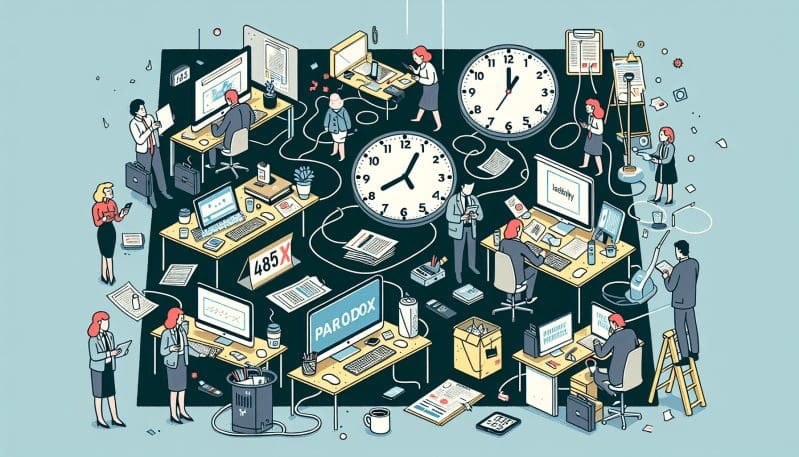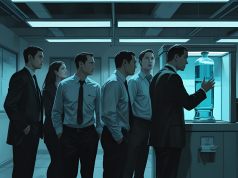As we embark on an exploration into the nuances of the modern workplace, we find ourselves at the crossroads of innovation and exhaustion. The relentless pursuit of productivity has long been the Holy Grail for organizations worldwide. Still, the emergence of the ‘Productivity Paradox’ – a phenomenon where technological advancements do not translate into a proportional increase in workplace efficiency – raises poignant questions about the actual efficacy of our current work paradigms.
The digital age promised a utopia of streamlined workflows and liberated time, fueled by an array of digital tools and agile methodologies aimed at simplifying our professional lives. Yet, we observe a contrasting reality: professionals are inundated with countless emails, instant messages, and a cavalcade of meetings that often surpass the confines of the conventional workday. The labor force, armed with the mightiest of gadgets and applications, finds itself entangled in a Sisyphean struggle against an ever-expanding workload.
Companies that take pride in their ‘always-on’ culture, equipping employees with the latest technological wizardry, have witnessed a puzzling trend. While projects become more complex and communication instantaneous, the anticipated leap in productivity is conspicuously absent. The ‘Productivity Paradox’ posits that despite our sophisticated digital arsenal, the promised land of enhanced output remains elusive.
At the heart of this paradox lies employee burnout, a specter haunting the corridors of modern enterprises. The mirage of multitasking has led to a scattergun approach to work, eroding deep focus and leaving employees in a state of perpetual cognitive juggling. The correlation between job satisfaction and productivity is well-documented, yet in the digital rat race, this relationship is often sidelined.
It’s not all doom and gloom, however. A vanguard of companies has recognized this paradox and is actively engineering a departure from the status quo. These pioneers understand that productivity is not solely a function of the number of hours clocked or the speed of task completion. By fostering an organizational culture that gives equal weight to well-being and performance metrics, they offer a glimmer of hope.
Case studies of these trendsetters demonstrate the potential of a balanced approach. By limiting after-hours communication, championing flexible work arrangements, and encouraging regular breaks, these organizations have not only boosted morale but have also seen a corresponding rise in productivity. They stand as testament to the fact that a well-rested mind is a high-performing one.
The conversation beckons us to ponder if it’s time to recalibrate the meaning of productivity in the workplace. The future beckons a model where efficiency is measured not by the sheer quantity of output but by the quality of work and the well-being of the workforce. The imperative is clear: to propagate a sustainable work environment that nurtures creativity, well-being, and genuine efficiency.
In conclusion, while technology remains an invaluable ally in the quest for productivity, it is our approach to work that requires evolution. By realigning our work practices with the human element at their core, we can unravel the ‘Productivity Paradox’ and pave the way for workplaces that truly embody the efficiency they strive for. It is a challenge that beckons businesses, thought leaders, and the workforce at large to initiate a dialogue on redefining productivity for the digital age—a topic that resonates with the intellectual curiosity and forward-thinking disposition of our readership drawn from the Washington Post, The New Yorker, and the New York Times.




























